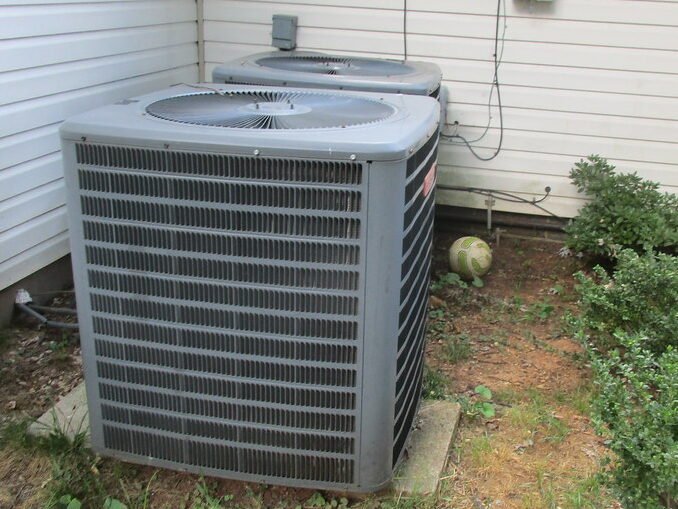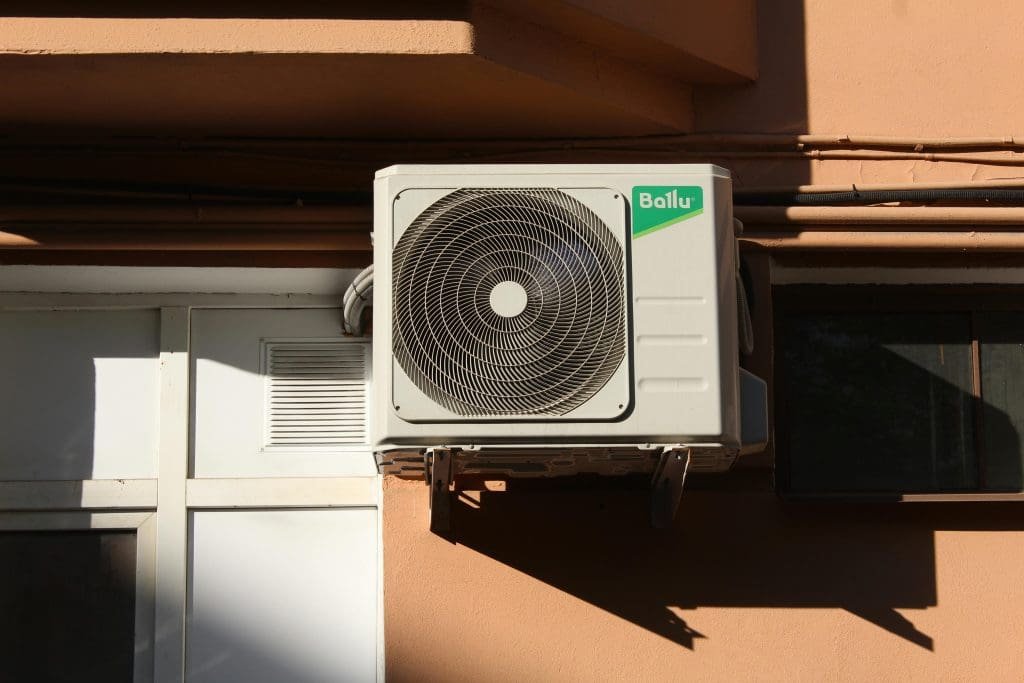Energy Efficiency Tips for HVAC Systems
HVAC systems are at the heart of our comfort at home and in the workplace. They regulate temperature, ensuring we stay warm in winter and cool in summer. But these systems can also be significant energy consumers, impacting both our wallets and the environment.

Energy efficiency is a crucial aspect of HVAC operation. It’s not just about reducing energy consumption and saving on heating bills. It’s also about contributing to a more sustainable future by minimizing our carbon footprint.
This guide provides practical energy efficiency tips for HVAC systems. Whether you’re a homeowner seeking to cut down on your heating bill, or a commercial property manager looking to optimize your HVAC solutions, you’ll find valuable insights here.
We’ll explore everything from regular HVAC maintenance and the benefits of efficient heaters, to the role of HVAC contractors in ensuring system efficiency. We’ll also delve into how to save on heating during the cold winter months.
So, let’s embark on this journey towards a more efficient HVAC system, and ultimately, a more sustainable future.
Understanding HVAC Energy Efficiency
Energy efficiency in HVAC systems can lead to significant cost savings and environmental benefits. Efficient systems use less energy to deliver the same level of comfort. This reduction in energy consumption results in lower HVAC heating bills.
Understanding HVAC efficiency begins with familiarizing yourself with key ratings. The Seasonal Energy Efficiency Ratio (SEER) is vital for air conditioners. It measures efficiency over a typical cooling season. A higher SEER rating indicates better energy efficiency.
For furnaces, the Annual Fuel Utilization Efficiency (AFUE) is important. This rating shows how effectively a gas furnace converts fuel into heat. An efficient furnace has a higher AFUE rating, often in the high 90s.
To enhance HVAC efficiency, consider the following actions:
- Install and properly use programmable thermostats.
- Schedule regular maintenance and cleaning.
- Seal and insulate ductwork to prevent leaks.
Incorporating these practices can boost your system’s performance and lifespan. You’ll enjoy lower bills and contribute to environmental preservation. Understanding and applying these ratings and tips are key steps towards energy-efficient HVAC solutions.
Regular HVAC Maintenance: The Key to Efficiency
Regular maintenance is crucial for maintaining HVAC system efficiency. Just like a car requires regular servicing, your HVAC system needs periodic checks. Proper maintenance extends the lifespan of your equipment and ensures optimal performance.
A well-maintained system runs more efficiently, reducing energy consumption. This directly impacts your heating bill, helping you save on heating costs. It also improves air quality by keeping components clean and functional.

You can follow a few seasonal maintenance tips to keep your system in top shape. These include:
- Replace air filters every 1-3 months.
- Check and clean coils and fans.
- Inspect thermostat settings and calibration.
- Lubricate moving parts to reduce friction.
- Clear debris from around outdoor units.
Performing these checks at the start of each season ensures your system is ready for the weather ahead. Be proactive rather than waiting for a breakdown. Regular maintenance can prevent costly HVAC repair and keep your system reliable.
For comprehensive service, consider hiring HVAC contractors. They possess the expertise to conduct thorough inspections and troubleshoot potential issues. By investing in regular maintenance, you secure long-term savings and comfort throughout the year.
Programmable Thermostats: Managing Comfort and Cost
Programmable thermostats are a smart addition to any HVAC system. They allow you to manage your home’s temperature efficiently. This reduces energy use and saves money on your HVAC heating bill.
To use programmable thermostats effectively, you should set appropriate schedules. Adjust the temperature to match your daily routine. For example, lower the heat during work hours and at night. This strategy ensures you only use energy when needed.
Advanced models offer extra features like remote access via smartphone apps. This lets you adjust settings from anywhere, giving you greater control. These thermostats also help in heating bill reduction by maintaining a consistent temperature. By integrating a programmable thermostat, you enhance your HVAC system’s efficiency and achieve significant savings without sacrificing comfort.
Sealing and Insulation: Essential Steps for Energy Conservation
Sealing and insulation are vital for maintaining an efficient HVAC system. Sealing leaks in ductwork prevents energy loss, ensuring your system doesn’t work harder than necessary. This step is crucial to avoiding wasted energy and high heating bills.
Proper insulation is equally important for maintaining a stable indoor temperature. By insulating your home, you can reduce the workload on your HVAC system. This not only enhances hvac efficiency, but it also extends the life of your equipment. Your system will keep your home comfortable without consuming excess energy.
Consider these essential steps to enhance HVAC efficiency:
- Seal gaps in ductwork with mastic or metal tape.
- Add attic and wall insulation where needed.
- Use weather-stripping on doors and windows to prevent drafts.

These simple yet effective steps can contribute significantly to energy conservation. By improving your home’s sealing and insulation, you reduce the strain on your HVAC system. This translates to both lower energy consumption and cost savings.
Upgrading to an Efficient Furnace or Heater
An efficient furnace or heater is vital for reducing energy consumption. If your system is more than 15 years old, you should consider an upgrade. Older systems tend to be less efficient, leading to higher heating bills and frequent hvac repair.
Modern, high-efficiency systems offer significant advantages over their predecessors. They use advanced technology to maximize heat output while minimizing energy use. This efficiency results in lower heating costs and improved comfort during the colder months.
When choosing a new system, look for units with high efficiency ratings. Systems with an efficient design, like a gas heater hvac, offer great cost savings over time. The upfront investment leads to long-term benefits, including a smaller carbon footprint and increased property value.
Upgrading your furnace or heater enhances comfort, efficiency, and savings. In the long run, a new system will pay for itself through reduced operational costs.
Smart HVAC Solutions: Integrating Technology for Better Efficiency
Smart home technology has revolutionized how we manage HVAC systems. Modern solutions integrate seamlessly into existing setups, enhancing system efficiency. Smart thermostats and sensors provide innovative ways to optimize heating and cooling.
Smart thermostats offer precise temperature control, adjusting settings based on occupancy and time of day. They allow for scheduling and remote adjustments through smartphone apps. This level of control helps in reducing unnecessary energy usage, contributing to significant savings on heating bills.
Sensors play a critical role in boosting HVAC efficiency. They detect changes in temperature, humidity, and occupancy, providing data to fine-tune operations. By responding to real-time conditions, smart HVAC solutions ensure comfort while minimizing energy consumption.
Embracing technology leads to more efficient HVAC systems and lower energy bills. Smart solutions provide an innovative path to enhanced comfort and sustainability. They represent a valuable investment for homeowners and businesses alike.
Professional HVAC Services: Ensuring Optimal Performance
Professional HVAC services play a pivotal role in maintaining system efficiency. Experienced HVAC contractors provide expert guidance tailored to specific needs. They assess system requirements and recommend appropriate upgrades or repairs.
Professional installation is crucial for optimal HVAC performance. Improper installation can lead to inefficiencies, escalating energy costs. Skilled professionals ensure systems are set up correctly from the start. This guarantees efficient operation and maximizes system lifespan.
Equally important is timely HVAC repair and maintenance. Professionals can identify potential issues before they become costly problems. Regular inspections and tune-ups keep systems running smoothly, preventing unexpected breakdowns. When handled by experts, HVAC systems deliver consistent comfort and energy savings.
Leveraging professional services guarantees your HVAC system operates at peak performance. It reduces maintenance costs and contributes to a more comfortable living or working environment. Investing in qualified HVAC contractors ensures long-term system efficiency and reliability.
Energy-Saving Habits for Daily Use
Adopting energy-saving habits can significantly reduce your HVAC heating bill. Setting the right temperature is crucial for efficiency. Aim for a thermostat setting that balances comfort with minimal energy use. During winter, lowering the thermostat by a few degrees can save on heating costs.
Window treatments play an unsung role in energy conservation. Utilizing curtains or blinds to block out cold drafts enhances indoor temperature control. In the summer, these same treatments can prevent sunlight from overheating a space, reducing the strain on air conditioning units.
Fans are a simple yet effective complement to HVAC systems. Ceiling fans help distribute warm or cool air evenly throughout your space. This allows you to set your thermostat lower and still maintain comfort. Employing these small changes in your daily routine can substantially boost HVAC efficiency. Incorporate the following practices:
- Set the thermostat at energy-efficient levels
- Use window treatments to manage heat flow
- Employ fans to circulate air effectively
Troubleshooting Common HVAC Efficiency Problems
Efficiency issues with your HVAC system can arise at any time. Recognizing symptoms early can prevent larger problems. Strange noises, uneven temperatures, or skyrocketing heating bills often signal underlying inefficiencies.
To address these, begin with basic troubleshooting techniques. Check for blocked vents, inspect the thermostat settings, and replace dirty filters. These small adjustments can significantly improve performance.
However, some situations require professional intervention. If efficiency issues persist despite your efforts, it might be time to contact HVAC contractors. Certified technicians offer expertise in hvac troubleshooting and can accurately diagnose complex problems. When in doubt, here are a few strategies to guide you:
- Inspect and clear vent obstructions
- Verify and recalibrate thermostat settings
- Replace air filters regularly
These initial steps can often resolve common HVAC issues. For advanced problems, rely on trained professionals for a thorough solution.
Conclusion: Maximizing HVAC Efficiency for Long-Term Savings
Improving your HVAC system’s efficiency is both beneficial and achievable. Regular maintenance, proper insulation, and smart technology integration are key strategies. Upgrading to high-efficiency units and using programmable thermostats can make a big difference in energy use.
By implementing these tips, you will reduce your heating bill and prolong your system’s lifespan. Energy efficiency leads to financial savings and a positive environmental impact. Take these steps seriously to ensure comfort and cost reduction in your home or business.
Call to Action: Schedule Your HVAC Efficiency Audit Today
Now is the time to make a change. Schedule an HVAC efficiency audit with a professional to discover potential improvements. A tailored assessment will guide you toward optimal energy savings. Don’t wait—start enhancing your system’s performance today.
